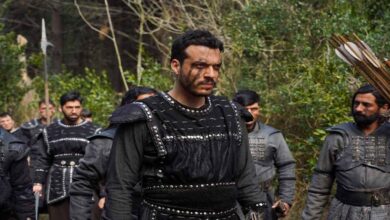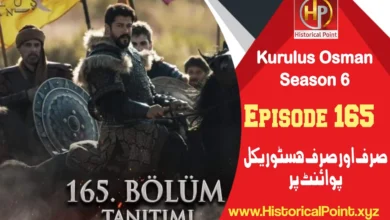
Who was Orhan Ghazi?
The Ottoman Empire, one of the most influential and enduring empires in history, had many significant figures who shaped its course. Among them, Orhan Ghazi stands out as a pivotal leader whose vision and leadership laid the foundation for what would become a global empire. In this blog, we’ll delve into the life, achievements, and legacy of Orhan Ghazi, exploring how his reign was instrumental in establishing the Ottoman Empire.
Table of Contents
- Introduction: Setting the Stage
- Early Life and Ascension
- Military Campaigns and Expansion
- Administrative Reforms and Governance
- Cultural and Societal Contributions
- Legacy and Impact
- Conclusion
Introduction: Setting the Stage
Orhan Ghazi, the second ruler of the Ottoman Empire, is often regarded as the true founder of the empire. Born around 1281, he was the son of Osman I, the founder of the Ottoman dynasty. Orhan’s reign, from 1326 to 1362, was marked by significant military, political, and cultural advancements that set the stage for the empire’s later successes.
Early Life and Ascension
Orhan Ghazi was born into a time of transition. His father, Osman I, had established a small principality in northwestern Anatolia, but it was under Orhan’s leadership that the Ottomans began to transform from a small principality into a significant power. Orhan’s early years were spent in the shadow of his father’s accomplishments, but upon Osman I’s death, Orhan ascended to the throne in 1326, becoming the second Sultan of the Ottoman Empire.
Military Campaigns and Expansion
Key Campaigns:
| Campaign | Year | Outcome |
|---|---|---|
| Battle of Bapheus | 1302 | Ottoman victory over the Byzantines |
| Conquest of Bursa | 1326 | Bursa became the first major Ottoman capital |
| Campaigns in Thrace | 1354-1362 | Expansion into European territories |
- Battle of Bapheus (1302): Although Orhan Ghazi was not yet Sultan at this time, his role in the victory at Bapheus, where the Ottomans defeated the Byzantine forces, was crucial. This battle marked the beginning of Ottoman expansion into Byzantine territories.
- Conquest of Bursa (1326): One of Orhan’s most significant achievements was the capture of Bursa, which became the first major Ottoman capital. This conquest not only provided a strategic and economic base for the Ottomans but also enhanced their political legitimacy.
- Campaigns in Thrace (1354-1362): Orhan Ghazi expanded the empire’s reach into Europe, marking the beginning of Ottoman dominance in the Balkans. The capture of Gallipoli in 1354 was a crucial step in this expansion, providing a foothold in Europe.
Administrative Reforms and Governance
Orhan Ghazi was not only a military leader but also a reformer who laid the groundwork for the administrative structure of the Ottoman Empire. His reforms included:
- Institutionalizing Governance: Orhan established a more formal administrative structure, including the appointment of local governors (beğs) and the implementation of a system of tax collection.
- Legal Reforms: He introduced a legal code that incorporated both Islamic and customary laws, which helped in the administration of justice across the diverse territories of the empire.
- Military Organization: Orhan established the Janissary Corps, an elite infantry unit that became a central part of the Ottoman military system.
Cultural and Societal Contributions
Orhan Ghazi’s reign also saw significant cultural and societal developments:
- Architectural Achievements: The Ottomans began to build mosques, palaces, and public buildings in Bursa, reflecting their growing power and sophistication. Notable examples include the Ulu Cami (Grand Mosque) in Bursa.
- Promotion of Trade and Commerce: Under Orhan’s rule, Bursa became a major commercial hub, attracting traders from across the region. This economic prosperity contributed to the empire’s stability and growth.
- Cultural Integration: Orhan Ghazi’s policies encouraged the integration of various cultural and ethnic groups within the empire, fostering a diverse yet cohesive society.
Legacy and Impact
Orhan Ghazi’s impact on the Ottoman Empire was profound. His military successes and administrative reforms laid the foundation for the empire’s future expansion and development. The institutions and practices established during his reign continued to shape the empire for centuries.
- Foundation for Future Success: The territorial gains and administrative innovations of Orhan’s reign provided a strong base for his successors, including his son, Murad I, who continued the expansion and consolidation of the empire.
- Symbol of Ottoman Identity: Orhan Ghazi is remembered as a key figure in the creation of the Ottoman identity and the transformation of the empire from a small principality into a significant power in the region.
Conclusion
Orhan Ghazi’s reign was a transformative period in the early history of the Ottoman Empire. His leadership not only expanded the empire’s territories but also established essential institutions and practices that ensured its growth and stability. As a visionary leader and reformer, Orhan Ghazi’s contributions were instrumental in shaping the course of Ottoman history, and his legacy continues to be celebrated as a cornerstone of the empire’s enduring success.
Explore More at Historical Point Website’s
To delve deeper into the lives and legacies of historical figures like Usman Ghazi, Ertugrul Ghazi, Salahuddin Ayubi, Sultan Muhammad Fateh and many more, visit Historical Point website for a wealth of insightful articles and comprehensive analyses.
| www.historicalpoint.xyz |



